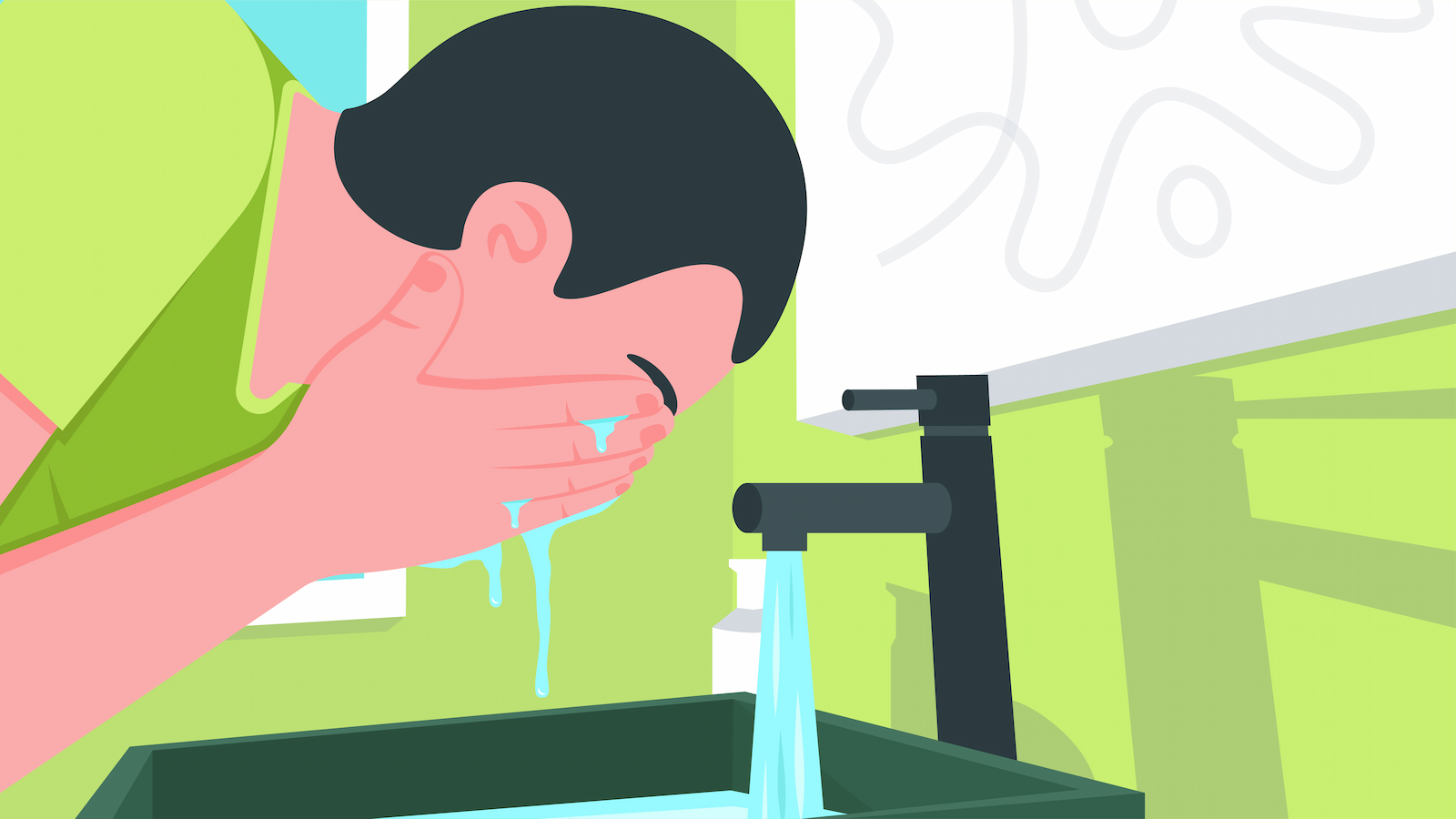Sleep apnea and anxiety are increasingly common in modern life, but are they connected?
While you probably wouldn’t underestimate the importance of a good night’s sleep, researchers are discovering that the true impact of intermittent or poor-quality sleep might be farther spread than you think.
Although sleep apnea and anxiety both exist on a scale—and everyone’s experience will vary based on a range of variables—growing bodies of research suggest there could be a link between these two common mental and physical health conditions.
In this guide, we’ll explore aspects of each and highlight how experts feel sleep apnea and anxiety could be interconnected.
What is Anxiety?
It’s essential to start by understanding that some level of anxiety is normal and expected.
It’s a typical response to stress, unfamiliar situations, and other common scenarios you might encounter.
Once anxiety becomes a chronic issue or reaches unmanageable levels, you could be experiencing the effects of a generalized anxiety disorder (GAD).
The exact definitions are somewhat fluid, and diagnosis should be left to a qualified mental health professional.
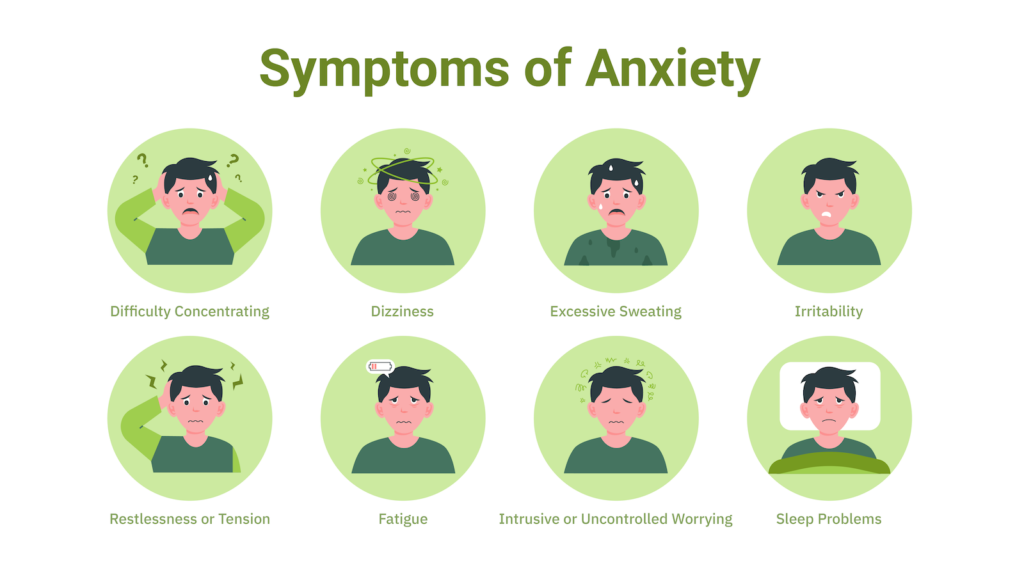
However, understanding the definition outlined by the Diagnostic and Statistic Manual of Mental Disorders, 5th Edition (DSM-5) can help clarify if you should seek medical advice or might be experiencing GAD. Symptoms defined by the DSM-5 include:
- Difficulty concentrating
- Dizziness
- Excessive sweating
- Fatigue
- Feelings of restlessness or tension
- Intrusive or uncontrolled worrying
- Irritability and mood shifts
- Sleep problems, including difficulty falling asleep or staying asleep
And with that final symptom, we can see the basis of a connection between the two conditions.
NOTE: Mental health is a complex topic. GAD is just one of many mental health disorders which might present some or all of these symptoms. Other options include PTSD, depression, panic disorder, phobia-related disorders, and more. None of these conditions are diagnosable by reading articles on the Internet, and they can be very serious. If you or someone you know might be experiencing mental health concerns, please contact a medical or mental health professional for proper diagnosis and therapy options.
What is Sleep Apnea?
We have complete guides on demystifying sleep apnea and what to expect when pursuing a sleep apnea diagnosis.
However, we’ll cover it at a high level here to help highlight potential connections between sleep apnea and anxiety.
Sleep apnea is a sleep disorder that results in intermittent breathing during the typical sleep cycle.
Exactly how this happens depends on which type of sleep apnea is occurring.
Regardless of the type, this is a potentially serious condition that can shorten life expectancy and reduce the quality of life for people with sleep apnea.
The three major types of sleep apnea include:
- Obstructive sleep apnea: occurs when airways are blocked, preventing breathing temporarily.
- Central sleep apnea: occurs when the brain fails to signal your breathing muscles to maintain a steady respiratory rate.
- Complex sleep apnea (also known as treatment-emergent central sleep apnea or mixed sleep apnea): a combination of obstructive and central sleep apnea.
While severity can influence both the frequency and duration of apnea episodes, all forms of sleep apnea result in disrupted sleep patterns and halted breathing.
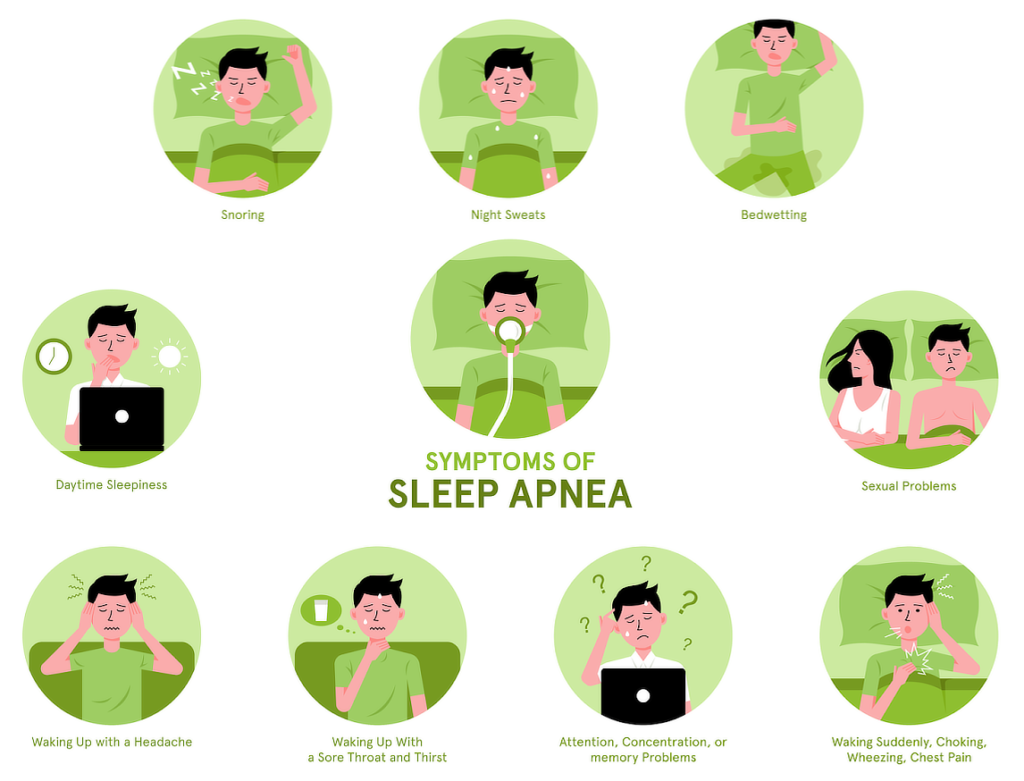
Common symptoms of sleep apnea include:
- Morning headache
- Gasping breaths during sleep
- Loud snoring
- Periodic breathing pauses during sleep — often followed by a loud snore, gasp, or jolting motion
- Sleep disorders, such as insomnia
- Daytime drowsiness or fatigue
- Difficulty focusing (both mentally or visually)
- General mood changes including irritability, aggression, or depression
- Dry mouth
And here, we begin to see further links emerge from the lists of symptoms and experiences.
So Does Sleep Apnea Cause Anxiety? Or Anxiety Cause Sleep Apnea?
The most commonly diagnosed form of sleep apnea is the obstructive variety.
As such, it’s far more likely to be influenced by other health factors—including weight, overall fitness, and the shape of various parts of your mouth, throat, and palette.
However, researchers are showing that sleep apnea can impact mental health—particularly the prevalence and severity of anxiety and depression symptoms.
A 2019 study of nearly 1000 Korean participants found, “This observational study using nationwide data suggests that OSA is associated with an increased incidence of affective disorder, such as depression and anxiety.”
An older 2012 study in Europe found that out of 685 recently diagnosed sleep-disorder patients, “More than half of patient [sic] had some degrees of depression and anxiety.”
While the study is older, the massive 4-million case sample size in a 2005 Veterans Health Administration study found “a significantly greater prevalence was found for mood disorders, anxiety, posttraumatic stress disorder, psychosis, and dementia in patients with sleep apnea.”
Specifically, 21.8% of sleep apnea diagnoses also included depression diagnoses, and 16.7% of sleep apnea diagnoses also had anxiety.
Other noted conditions included psychosis, posttraumatic stress disorder, and bipolar disorders.
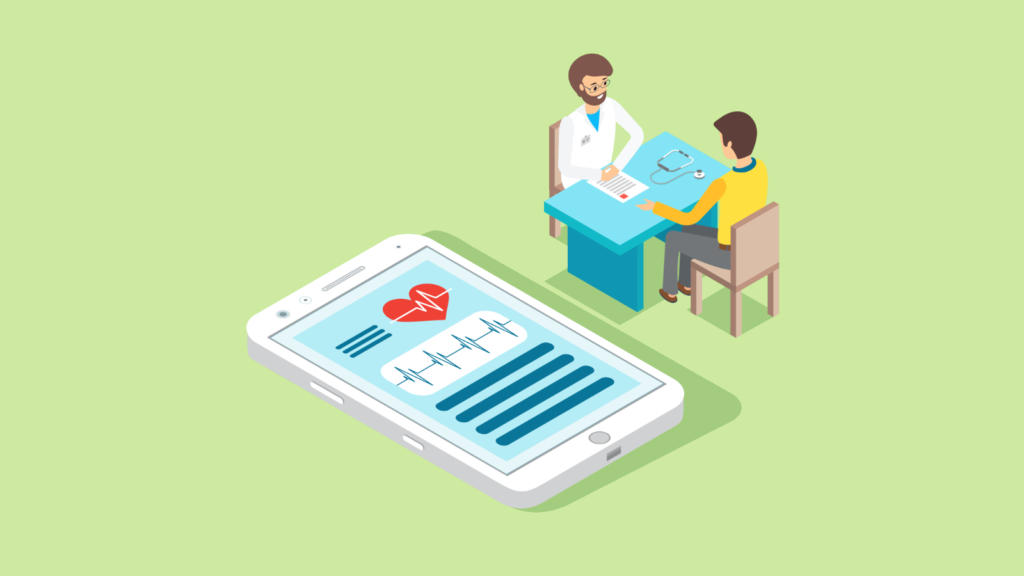
Researchers have discovered that the two conditions can create a cycle which feeds each condition separately.
Enhanced stress can lead to poor sleep habits, which then aggravate sleep apnea symptoms, leading to poor sleep quality and increased stress and decreased mood the following day.
There are even cases where apnea episodes have caused anxiety surrounding falling asleep, preventing sleep and further accelerating the cycle.
While the exact causes and correlations are possibly more complex than simply attempting to link sleep apnea and anxiety or depression, it’s clear that there are trends connecting the two.
Even if they don’t cause one another, there is established precedence of comorbidity.
Can Treating Sleep Apnea Impact Anxiety or Depression Symptoms?
Here’s where the data gets much clearer.
In numerous studies, consistent adherence to PAP therapy not only reduced symptoms of sleep apnea but saw a decrease in mental health concerns and symptoms as well.
In a 2017 study in the European Respiratory Journal, researchers monitored 100 patients using a range of scales intended to assess sleepiness, anxiety, and sleep quality.
Using CPAP machines for 5+ hours per night saw a measurable improvement across all metrics!
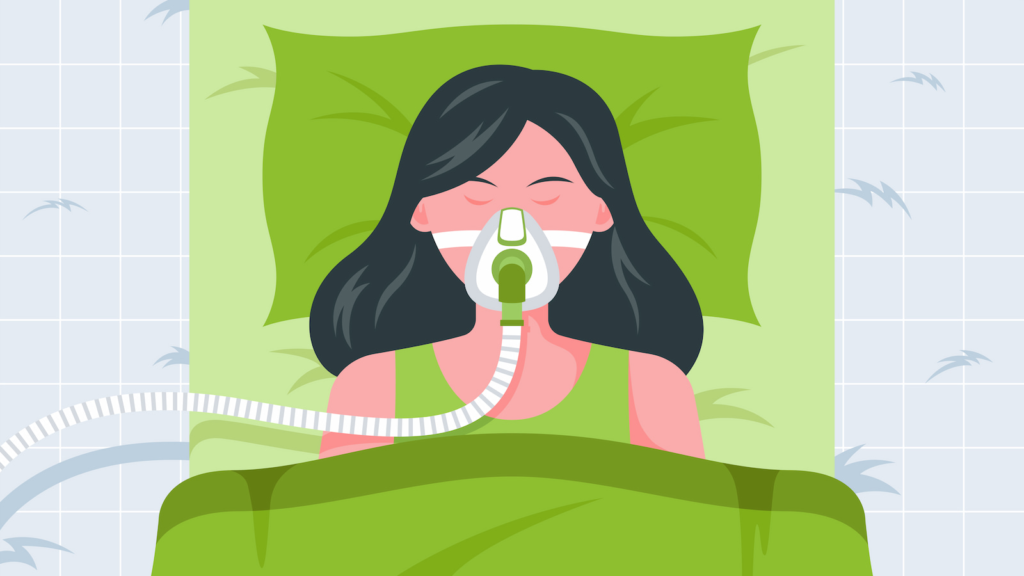
Of course, the complete solution is likely more complex.
You should always consult your primary care provider or qualified mental health professional to assess the best options for your symptoms.
They can help you develop a treatment plan, complete any assessments required—such as at-home sleep studies—and help to monitor treatments and ensure effective, safe relief of any symptoms you might be experiencing.
Key Takeaways
- Anxiety is a normal element of life. However, it could indicate mental health concerns when it becomes chronic or overwhelming.
- Symptoms of Generalized Anxiety Disorder (GAD) include difficulty concentrating, dizziness, excessive sweating, fatigue, feelings of restlessness or tension, intrusive or uncontrolled worrying, irritability and mood shifts, difficulty falling asleep, and difficulty staying asleep.
- If you or someone you know might be experiencing mental health concerns, please contact a medical or mental health professional for proper diagnosis and therapy options.
- Sleep apnea is a sleep disorder that results in intermittent breathing during the typical sleep cycle.
- The three major types of sleep apnea are obstructive sleep apnea, central sleep apnea, and complex sleep apnea—also known as treatment-emergent or mixed sleep apnea.
- Common symptoms of sleep apnea include morning headache, gasping breaths during sleep, loud snoring, periodic breathing pauses during sleep, sleep disorders, daytime drowsiness or fatigue, difficulty focusing (both mentally or visually), general mood changes, and dry mouth.
- Multiple studies have found a significant level of comorbidity between sleep apnea and anxiety and depression in numerous global studies.
- These comorbidities can create cyclical periods of poor sleep and increased stress and anxiety, further fueling sleep concerns.
- Fortunately, proper use of PAP therapy has been shown to reduce both apnea symptoms as well as anxiety and depression.
- If you suspect that you or someone you know is experiencing sleep apnea, anxiety, or depression, consult a medical professional to start to diagnosis process as soon as possible.
CPAP Supply is a leading online supplier of CPAP equipment and accessories for customer satisfaction. Our comprehensive selection of products makes it easy to obtain everything you need to make the most of your PAP therapy at competitive prices. Contact us today to discuss your needs!
References
- Verywell Health: Can Sleep Apnea Cause Anxiety?
- WebMD: Can Sleep Apnea Cause Anxiety?
- NIH PubMed: The Correlation of Anxiety and Depression With Obstructive Sleep Apnea Syndrome
- ResMed: Anxiety and Sleep Apnea: The Sleep/Health Connection
- JAMA Otolaryngology-Head & Neck Surgery: Association of Obstructive Sleep Apnea With the Risk of Affective Disorders
- CalmClinic: Can Anxiety Cause Sleep Apnea?
- SleepTest.co.uk: The Link Between Sleep Apnoea and Anxiety
- European Respiratory Journal: Effects of CPAP Treatment on Anxiety and Depression in Patients With OSAS

